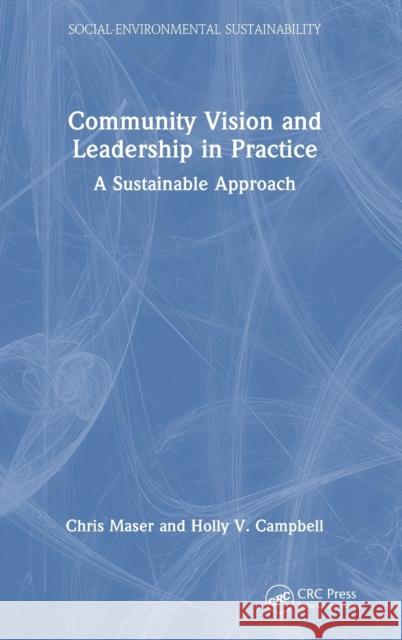Community Vision and Leadership in Practice: A Sustainable Approach » książka
Community Vision and Leadership in Practice: A Sustainable Approach
ISBN-13: 9781032402871 / Angielski / Twarda / 2023 / 192 str.
Community Vision and Leadership in Practice: A Sustainable Approach
ISBN-13: 9781032402871 / Angielski / Twarda / 2023 / 192 str.
(netto: 487,78 VAT: 5%)
Najniższa cena z 30 dni: 463,39
ok. 16-18 dni roboczych.
Darmowa dostawa!
This book is about building and maintaining involved, sustainable, and inclusive communities from the ground up during a period of unprecedented growth and global change. It explains the concepts and principles of community and sustainability and provides students with a framework of sustainable community planning to put into practice. It is also designed to help communities everywhere identify and reconnect the true essence of their ecological setting with the objective of raising their quality of life by increasing social, environmental, and economic sustainability. Features:Provides up-to-date frameworks for sustainable community planning processes and case studies on community planning. Explains tools for sustainable planning in accessible (non-specialist) language. Illustrates a roadmap to an inclusive, collaborative future. Explains aspects of sustainable community planning to maximize ecological, ecosystem services and climate co-benefits simultaneously. Includes discussion questions and suggestions following each chapter.Intended for undergraduate and graduate students taking leadership and community courses with an emphasis on sustainable practices and ethics, as well as citizens and professionals involved in community projects related to sustainability, the authors provide a forward-thinking approach, showing readers that they are capable of making a positive impact on the future of community development through sustainable approaches and ethical leadership practices.
This book is about building and maintaining involved, sustainable, and inclusive communities from the ground up during a period of unprecedented growth and global change. It explains the concepts and principles of community and sustainability and provides students with a framework of sustainable community planning to put into practice. It is also designed to help communities everywhere identify and reconnect the true essence of their ecological setting with the objective of raising their quality of life by increasing social, environmental, and economic sustainability.
Features:
- Provides up-to-date frameworks for sustainable community planning processes and case studies on community planning.
- Explains tools for sustainable planning in accessible (non-specialist) language.
- Illustrates a roadmap to an inclusive, collaborative future.
- Explains aspects of sustainable community planning to maximize ecological, ecosystem services and climate co-benefits simultaneously.
- Includes discussion questions and suggestions following each chapter.
Intended for undergraduate and graduate students taking leadership and community courses with an emphasis on sustainable practices and ethics, as well as citizens and professionals involved in community projects related to sustainability, the authors provide a forward-thinking approach, showing readers that they are capable of making a positive impact on the future of community development through sustainable approaches and ethical leadership practices.











